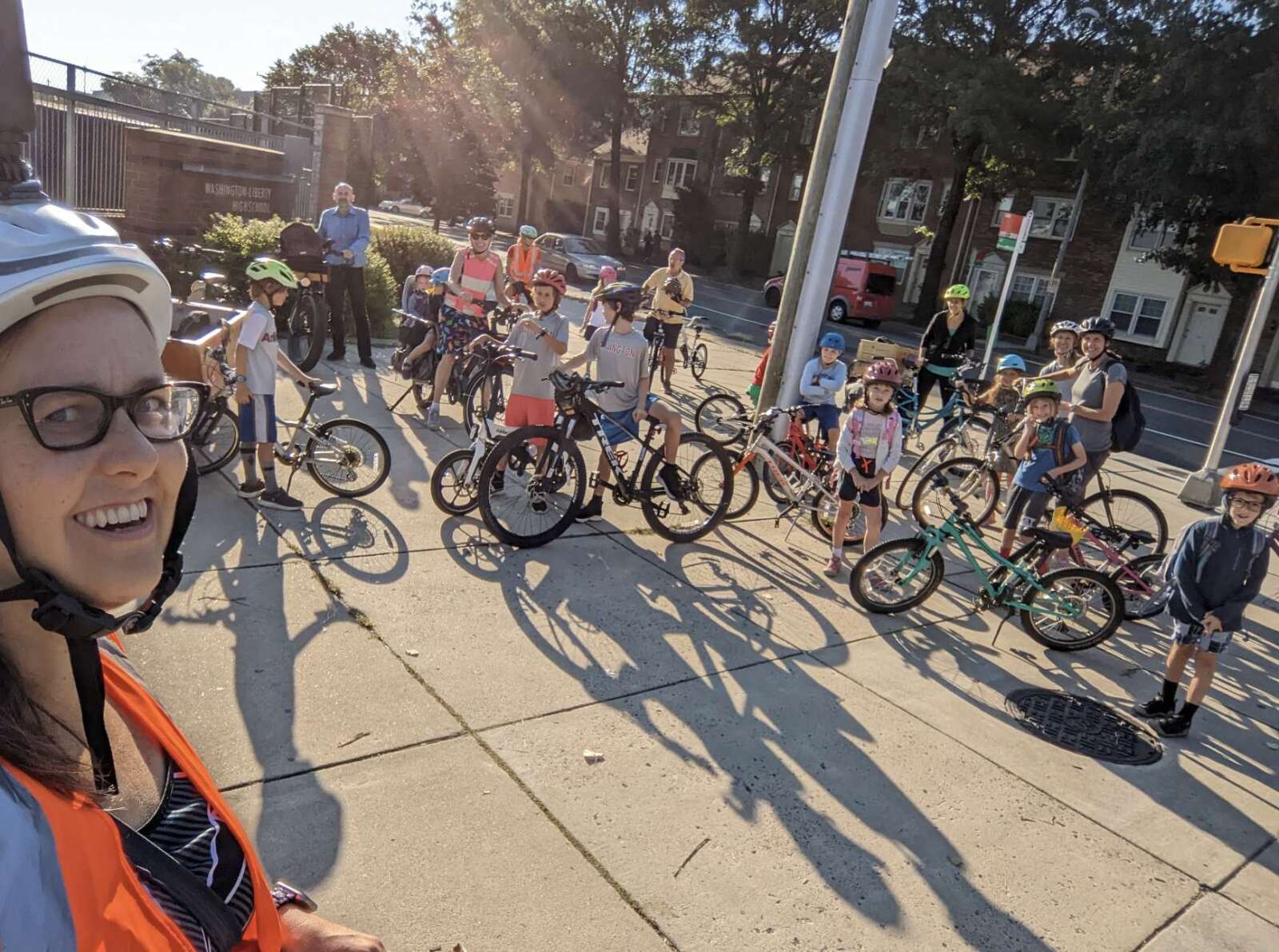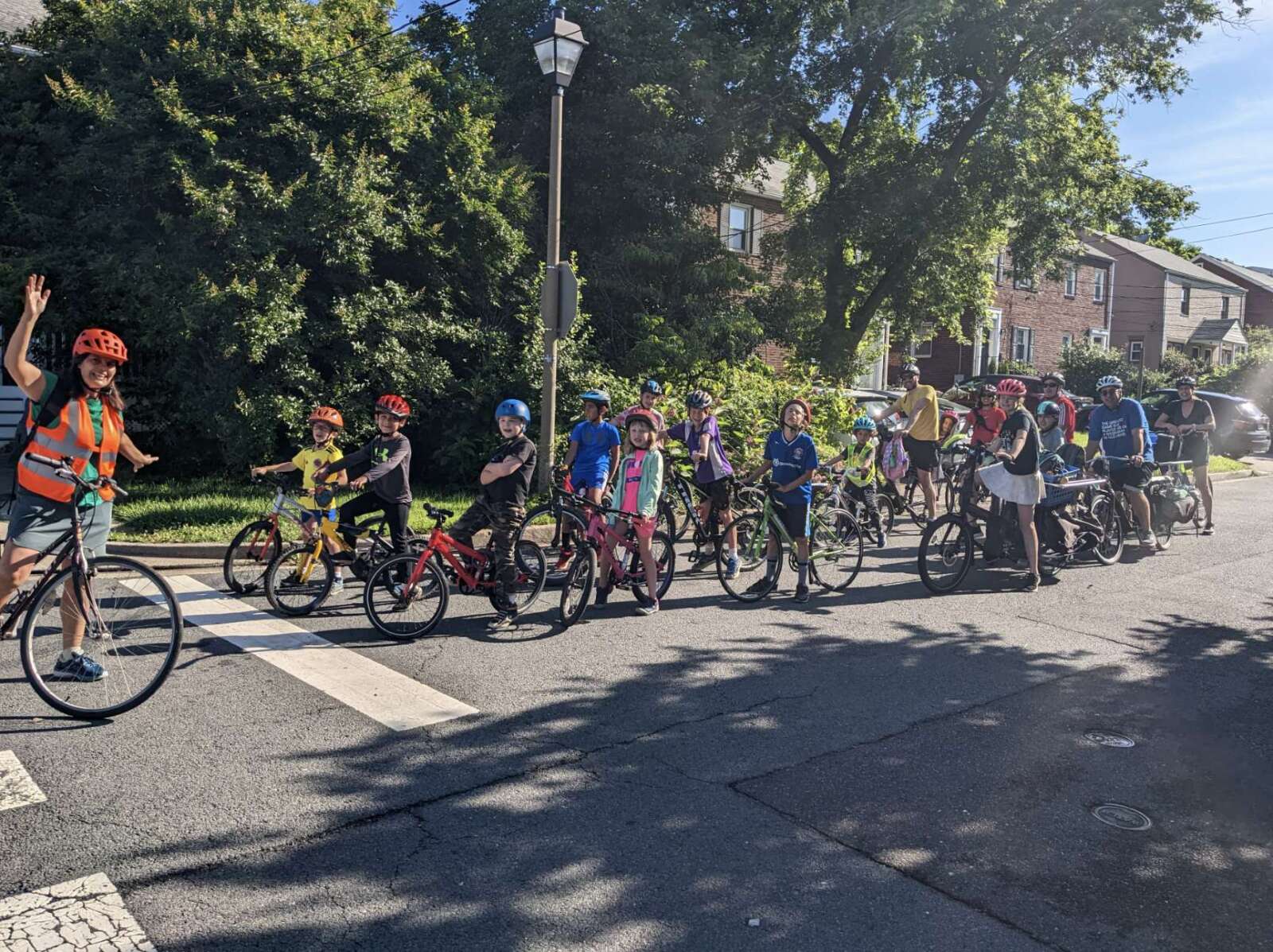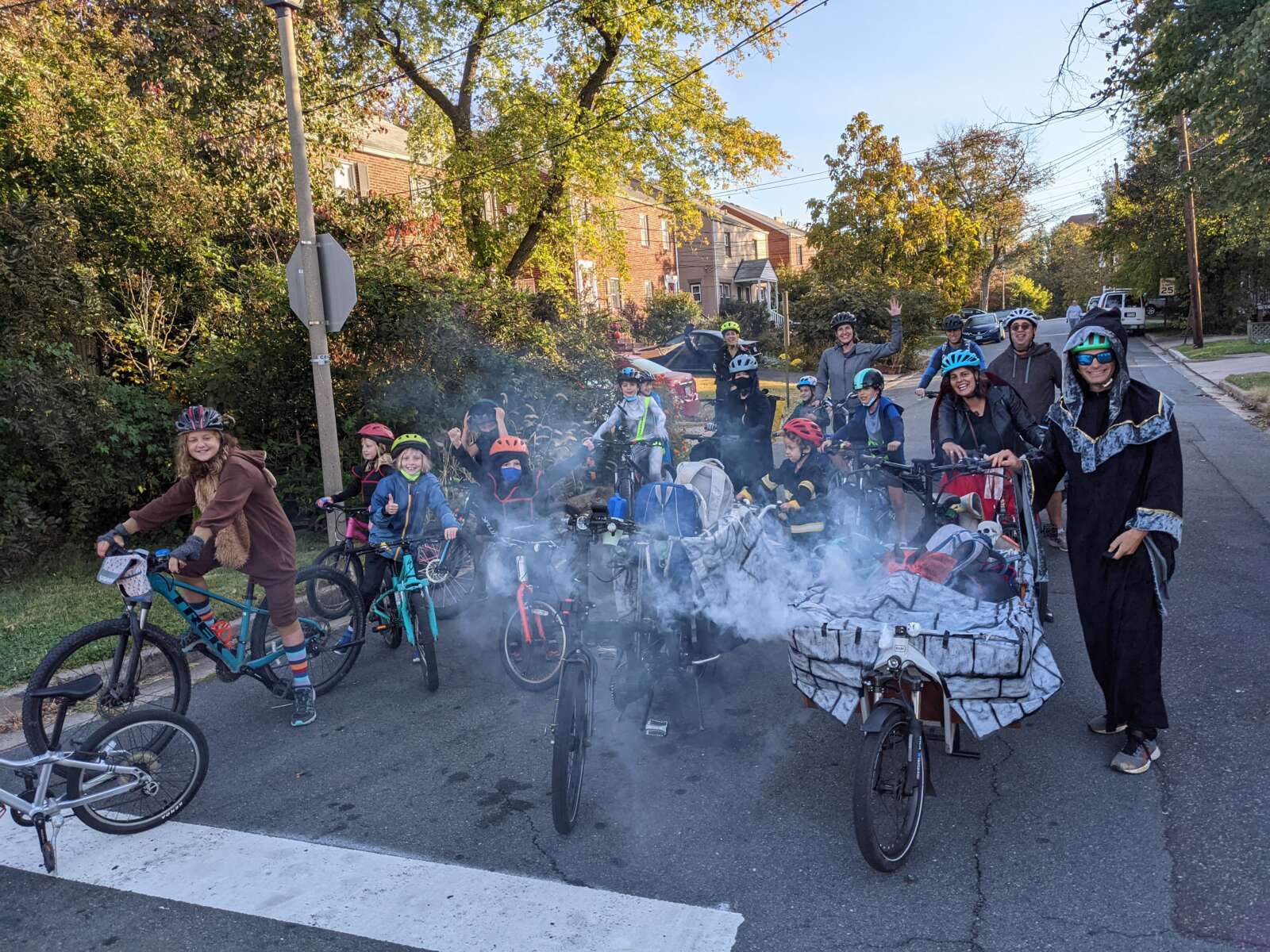Kds from Escuela Key and Campbell Elementary schools can regularly be seen bicycling to school to upbeat music.
Sometimes, there is a theme — like wearing costumes on Halloween — as well as the occasional sweet treat or freebie, like bicycle lights from the county program Bike Arlington.
“I am not above bribing children,” says Gillian Burgess, who leads a group of children to the dual-language elementary school Escuela Key. “Donuts are definitely a big help.”
Burgess is a volunteer conductor of a bicibús (Spanish for “bike bus”) — a weekly bicycling group with a set route that makes two stops to pick up kids on the way to Escuela Key. It has a Spanish name because the concept started in Vic, Spain, to provide safety in numbers to kids intimidated by traffic, per a Duolingo podcast with the woman who started the bicibús.
It has since spread to larger Spanish cities, such as Barcelona, and throughout Europe. And it has gone stateside to Portland, Seattle and now Arlington.
In Portland, Oregon, a group of parents and one teacher came together to create an alternative way of getting kids to school while clearing road congestion.@byjacobward shares more details about the “bike bus” where hundreds of students ride together through the neighborhood. pic.twitter.com/LPdFK2gHyJ
— NBC Nightly News with Lester Holt (@NBCNightlyNews) October 12, 2022
Burgess started the Escuela Key route when APS provided hybrid education in spring 2021, and some parents worried about Covid transmission on buses. Now, families stick with it because they have noticed improvements to their child’s mood and focus in school, she said.
“It’s fun,” says fourth-grader Billy Schnell. “I like biking to school with my friends in the morning. It makes me happy. The regular bus is hot and stuffy, but I feel cool on the Bicibús.”
Burgess said there are two great things about the program: “Kids can go even if caretakers can’t go with them and there is safety in numbers.”
In greater numbers, Escuela Key riders feel safer navigating unlit crossings and getting from the intersection of the Bluemont Trail with N. George Mason Drive to Escuela Key a block away, she said. It also helps families break from their driving routines and gives kids independence.
“We take our kids to all these places. We sit and wait for them to finish their activities. We drive them there and home,” Burgess said. “It sucks for us as parents because we’re spending all this time chauffeuring, and kids are not learning how to be independent and confident.”
Meanwhile, the Campbell bike train, which started this year, provides a bi-monthly alternate route home now that parents cannot drive to pick up their kids directly from school, a decision Burgess said was made to improve student safety.
Burgess has taken other steps to help kids feel comfortable on bikes, such as helping install traffic gardens where kids could learn the rules of the road in miniature two years ago.
At the time, that had support from APS, but she is hoping for more coordination with the schools system now. That’s especially so in the wake of a number of high-profile crashes that involved students or happened near schools and have prompted the community and the Arlington County Board to call for swifter action on traffic safety and drunk driving.
“We don’t have a partner in APS right now,” she said, adding that she has reached out for help but hasn’t gotten much of a response. “We need someone who can come at it as a professional in the school system in terms of what is appropriate for adolescents, children and teenagers. What is the right messaging? What works?”
APS has indicated it will continue to let families take the lead on this effort.
“Bike trains are really a parent and community centric activity that is started by neighborhood families or students,” APS spokesman Frank Bellavia said. “We can provide some support to schools that have them or are interested in them by providing safe routes to school.”
Concurrently, APS is working to hire a new Transportation Demand Management position, which will incorporate the responsibilities of the grant-funded and now-vacant Safe Routes to School coordinator position.
“We continue to work closely and collaborate with the county on traffic management and safety near schools,” he said. “Once filled, the TDM position will work with the county on those issues.”
Burgess plans to host a webinar this winter to show people how to start bicibúses to their school. But with support from schools and the county, she says bicibúses could become a permanent fixture.
In Spain, bicibúses are part of municipal climate change plans and not connected to individual schools, Burgess said. These bike trains travel along main routes, with a police escort, and kids hop on when it passes by them and hop off when it passes their school.
“We’re talking about something that improves children’s learning, gives them life skills, combats climate change and makes our communities safer,” she said. “We want the change to be made.”




